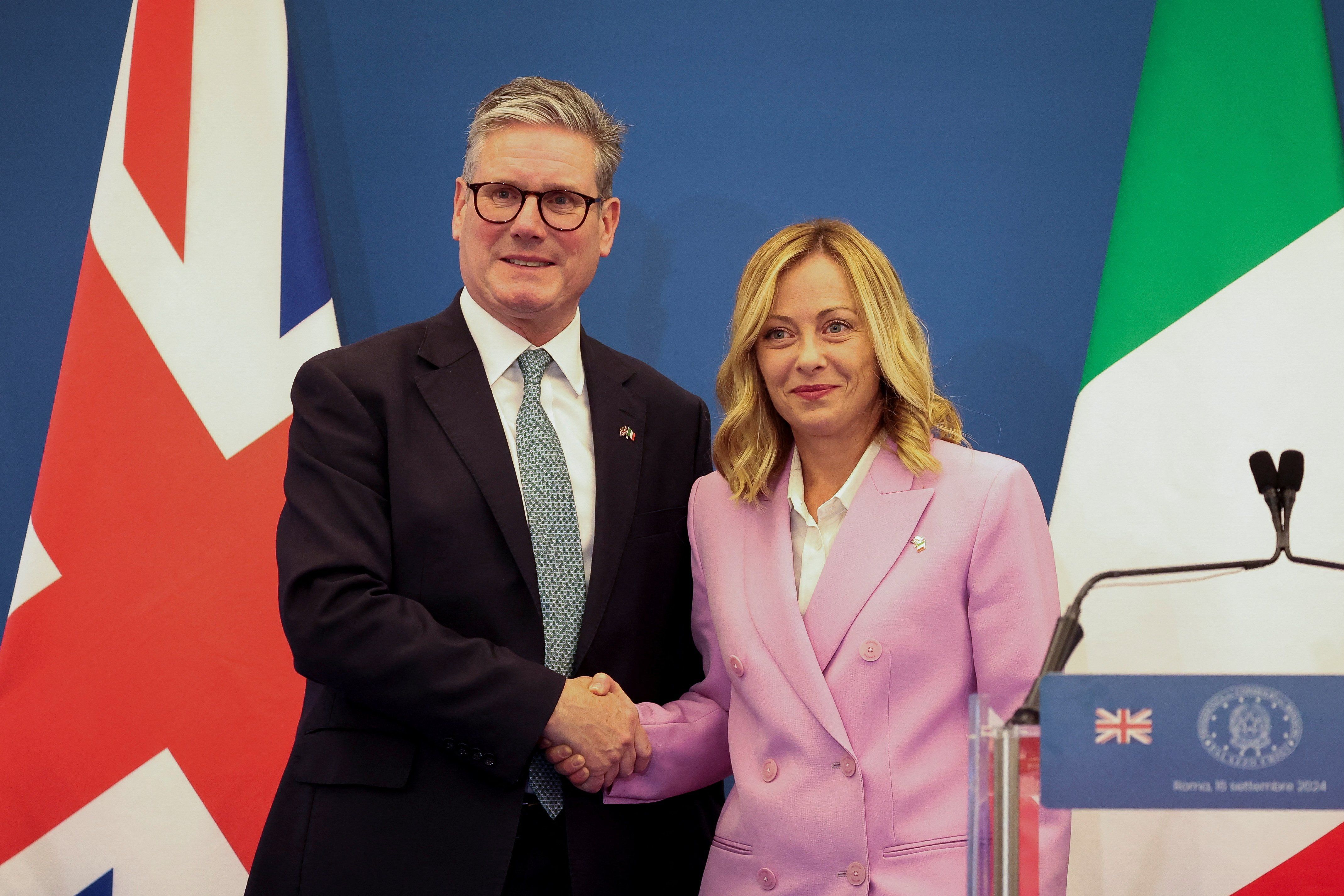UK Prime Minister Keir Starmer meeting with Italy’s Prime Minister Giorgia Meloni.
UK Prime Minister Keir Starmermet with Italy’s Prime Minister Giorgia Meloni on Monday to learn how her hard-line tactics against irregular migration could help him deliver on his election promise to “smash the gangs” driving such migration to the UK. The meetings came after eight migrants died crossing the English Channel on Sunday and on the heels of disinformation-fueled anti-immigrant riots in August.
Starmer is interested in how Meloni cut irregular sea crossings to Italy by 60% over the past year, and in the so-called “Rome Process” she adopted last year when she forged deals with North African countries like Tunisia and Libya to tackle people-smuggling gangs, intercept departing boats, and return migrants. Starmer pledged £4 million to support the Rome Process. He also said he was open to following Italy’s lead on processing asylum claims offshore — a project Meloni is struggling to get off the ground in Albania but one that has generated the interest of leaders across Europe, including in Brussels.
The meeting shows how Starmer has changed his tune on immigration since campaigning against Rishi Sunak’s plan to deport illegal migrants to Rwanda. It also signals how Europe's shift to the right on immigration has positioned Meloni’s tactics – once considered fringe – in the mainstream.
